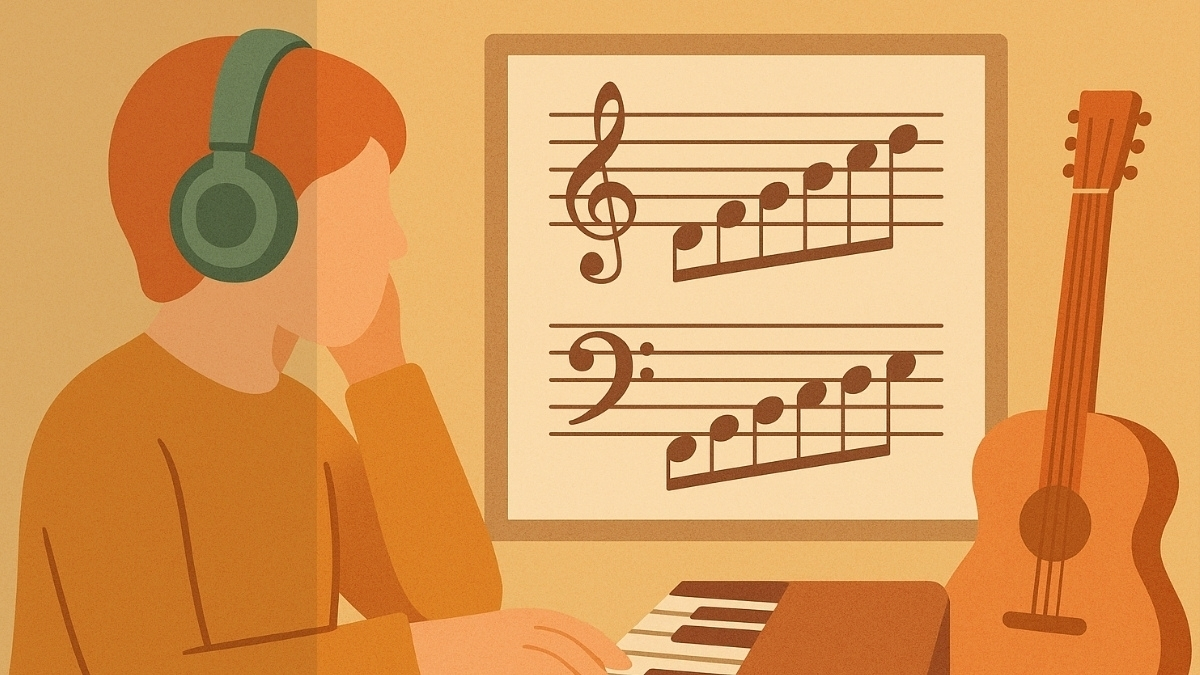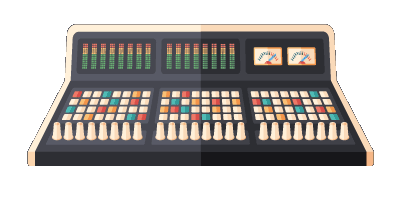5 Ways to Get Musical Inspiration

inspiration is elusive. When it rains it pours, and as artists developing our craft and navigating our industry, there's no time to waste. Here are five ways you can smash writer's block and stay inspired.
1. Listen
One sure-fire way to find inspiration is to listen. Listening is what got us here in the first place. Listening to music was the cause; creating music is the effect. If you find yourself feeling dry and uninspired, return to the place of being a music FAN. Start with an old favourite, something that inspired you to start writing or playing music when you were younger, maybe even something you haven't listened to in a while. Better yet, listen to something totally unfamiliar.
My suggestion is to listen to music that isn't popular, at least right now. Try to draw inspiration from the popular music of the past, or better yet, from something so old or unpopular, people think it's trendy and new.
During the hip-hop revolution, crate-digging, or the practice of thumbing through the $0.99 bin at record stores to find sample material, became commonplace as a method of generating new ideas from recycled material. By sampling these 'unpopular' or 'irrelevant' records on clearance, beatmakers were able to follow inspiration into new territory. As creators, we are always transforming raw, existing material. The only way to produce something 'unique' is to diversify your exposure.
2. Collaborate
Having collaborators can be transformative. In an age of bedroom producers and solo artists, the art of collaboration may be a bit out of fashion. It shouldn't be. Some of today's top hits have upwards of 10 writers/producers, and while nearly a dozen contributors may seem a bit overboard to some, there's a reason those songs are successful.
While we'd all love to believe we are an endless stream of quality ideas, the reality is that most of us are not a one-stop-shop for creating at the next level. Whether you bring in an outside producer to expedite your workflow as a writer or another creator with a complementary skillset, collaboration will push you to grow as a musician, artist and human being.
3. Transform
An old favourite technique of mine was to rewrite an existing song. I'm not talking about sampling, I'm talking about taking a reference track and deconstructing it one element at a time.
Start with the lyrics. Try writing new lyrics to the existing melody, then tweak it until the original idea is unrecognizable. You can do the same for the groove, chord progression or production elements. Try taking the existing progression and change the key. You can even change the song from major to minor, or vice versa. Try replacing a chord using modal interchange, or rearrange the chord inversions until you have something totally unique.
Another way to apply this method is to find a drum loop or sample from a royalty-free sample library like Splice.com, and proceed to reconstruct or re-record the idea using your own samples, synths or instruments. As you go, make small changes to the melody or beat, shifting a kick here or a snare there, until you've 'buried' the sample in your new song.
4. Set Limits
Limitation can inspire innovation. This suggestion is widely applicable, whether you're a writer, producer, performer or teacher. As a player, setting limits can be beneficial during practice, to break away from familiarity and push the envelope of creativity. Some examples would be: to improvise using only suspended triads, avoid playing on a certain beat, or to use only triplets during a phrase or passage.
As a writer, this could mean using only adjectives as the first word in a new line or avoiding the tonic in the melody.
Here is a game you can play right now. Get seven sticky-notes or index cards, and write a 'limited' idea on each one. Shuffle them, and start with one every day this week. Here are a few examples to get you started:
- Write a song in ABABC format, and never resolve to the 1 chord
- Produce a track with a dancehall beat and only use samples/patches of acoustic instruments
- Practice improvising in a 12 bar form and always avoid playing on beat 1
5. Non-musical Sources
Music is a non-exhaustive artform, and as such it's important for us to keep an open mind and let outside sources move and inspire us every day. These sources can be anything from the sunshine or sound of traffic; to TV, movies, literature and video games.
When you're hitting a wall creatively, try shifting gears entirely and draw on some outside sources to get things moving. Watch an old film and write a song about it, or try producing a new track that takes inspiration from a design element in an interactive universe. Read a book or write about something you read in a magazine. Beethoven was a huge advocate of immersing oneself in nature and sourcing inspiration from the sounds of the earth, oftentimes writing entire pieces whilst sitting in the country sans piano.
Use a line from your favourite TV show as a song title to get started. Billie Eilish took, 'You Should See Me in a Crown' from Sherlock.
One more idea for instrumentalists is to mute a TV show, movie or YouTube video and improvise along with the visual.
We hope this list will help generate some fresh new ideas within the ToneGym community. Have you already tried some of the things on this list? Want to share your results? What about some other ideas we missed? Let us know in the comments



Comments:
Nov 06, 2020
Nov 05, 2020
Login to comment on this post